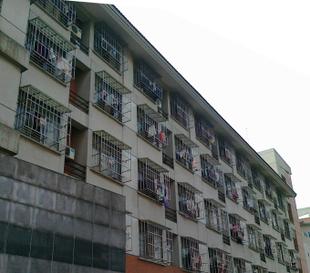Für das Wohlergehen der Arbeiter*innen — Empfehlungen für die Elektronikindustrie
Zwei Tage bevor die Studie über die Zusammenhänge zwischen Beschäftigungsverhältnissen und Selbstmordrisiko in der chinesischen Elektronikindustrie vom Economic Rights Institute und Electronics Watch veröffentlicht wurde, kündigte die Responsible Business Alliance eine neue Initiative zur Verbesserung des „Wohlergehens von Arbeiter*innen" in Fertigungslieferketten in Asien an. Zwar ist dies eine deutlich umfangreichere Initiative zur Verbesserung der Lebensqualität als bisher von der Industrie zu sehen war, dennoch ermahnen ERI und Electronics Watch die Industrie, nicht die Verknüpfung von Selbstmordrisiko mit Beschäftigungsbedingungen aus den Augen zu verlieren.
Die Studie von ERI und Electronics Watch unterstreicht dabei insbesondere Bedingungen wie erzwungene Überstunden und Beschneidung von Arbeiterrechten, z. B. wenn Kündigung nur in Zusammenhang mit Lohnverzicht möglich ist. Wir schlagen unter anderem Folgendes für das Programm zum Wohlergeben der Arbeiter*inn von RBA vor:
- Zusammenarbeit mit zivilgesellschaftlichen und soziologischen Experten, statt nur mit medizinischen Experten. Damit ist sichergestellt, dass auch in Zukunft der Einfluss der Beschäftigungsbedingungen auf das Wohlergehen im Fokus steht.
- Der Oberbegriff „Wohlergehen" kann eine positive Haltung fördern und notwendige Verbesserungen bei den Beschäftigungsbedingungen vorantreiben, dabei dürfen jedoch nicht die Risiken für Selbstmord aus den Augen verloren werden.
- Auf Grundlage der Studie von ERI und Electronics Watch sollte überprüft werden, inwiefern es direkte Zusammenhänge zwischen Beschäftigungsbedingungen und dem Wohlergeben der Arbeiter*innen gibt.
Wohltätige Bemühungen um das Wohlergehen von Arbeiter*innnen reichen nicht aus. Stattdessen muss die Industrie Arbeitgeber in die Verantwortung nehmen, um die Probleme in Produktion und in Beschäftigungsbeziehungen zu adressieren. Wir hoffen, die Elektronikindustrie wird sich dieser Herausforderung stellen.
Response from the Responsible Business Alliance (12 July, 2019)
Thank you for the input on the upcoming worker survey. As you are aware, the RBA was founded in 2004 with the focus of the original Code of Conduct on the worker. Our vision is: A global industry that creates sustainable value for workers, the environment and business.
The RBA is a leading organization in the areas of forced labor, the workplace environment, employment conditions, etc. as evidenced in our Code of Conduct and the work of our Initiatives. We work tirelessly to address issues in the workplace that may lead to conditions that create stress and impact worker well-being in the workplace. The focus on these issues was not identified or created during the last twelve months but rather over 15 years of committed work in this space.
Thank you for the input on the upcoming worker survey. As you are aware, the RBA was founded in 2004 with the focus of the original Code of Conduct on the worker. Our vision is: A global industry that creates sustainable value for workers, the environment and business.
The RBA is a leading organization in the areas of forced labor, the workplace environment, employment conditions, etc. as evidenced in our Code of Conduct and the work of our Initiatives. We work tirelessly to address issues in the workplace that may lead to conditions that create stress and impact worker well-being in the workplace. The focus on these issues was not identified or created during the last twelve months but rather over 15 years of committed work in this space.
We are very excited about the creation of a worker survey with our trusted, credible, partners Impactt and Ulula. We are confident that it will represent the single most extensive worker survey conducted in the industry. It is designed to identify the challenges that are present in the workplace and will help create a road map to address any systemic issues that are identified in a meaningful and impactful way on behalf of the industry and the RBA. The goal of this new tool will in fact link working conditions to worker well-being.
While the development of the actual worker survey has just begun, we will as you outlined, be seeking input from health experts, researchers and stakeholders both from within and outside the industry. We have not yet identified the list of experts that we will utilizing.
We view the survey as only one input into a broader body of work in the area of workplace wellbeing. The survey is only a tool to identify the challenges workers face. The impactful work of advancing the wellbeing of workers will be developed in response to the survey results which will include external stakeholder consultation. Thank you for your offer to provide input.


